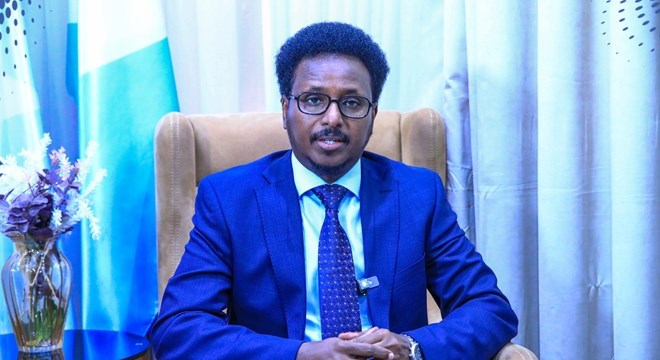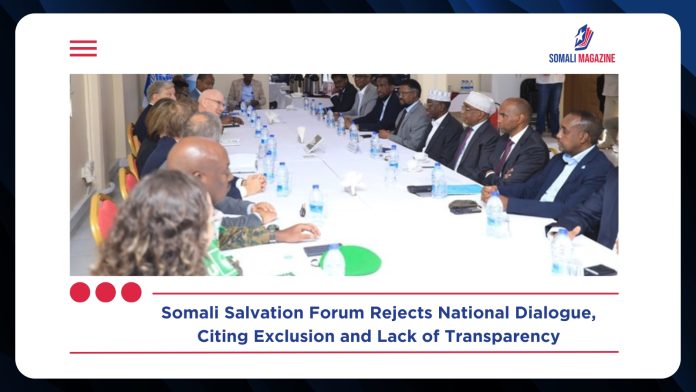Facebook Twitter (X) Instagram Somali Magazine - People's Magazine
The Somali Salvation Forum has officially rejected participation in the federal government’s national consultation forum, citing exclusion, lack of transparency, and failure to engage key stakeholders. The opposition coalition, led by Secretary General Dr. Mohamed Adan Koofi, announced its decision just hours before the forum was scheduled to begin in Mogadishu, casting doubt on the legitimacy and inclusivity of the process.
Dr. Koofi described the forum as a “cosmetic consultation” that risks deepening political divisions rather than fostering national consensus. He criticized President Hassan Sheikh Mohamud’s administration for failing to provide a clear agenda or a comprehensive list of participants, arguing that the process lacked the openness necessary for meaningful dialogue. “The train led by President Hassan Sheikh has derailed and needs to be reset,” Koofi said in a televised interview. “We will not join a table where Somalis are missing, nor participate in a process that fragments the country.”
The national consultation forum was launched as part of the government’s broader effort to engage political actors on constitutional reform, federalism, and preparations for the 2026 elections. However, the absence of major opposition groups and federal member states such as Puntland and Jubaland has raised serious concerns about the forum’s credibility.
Puntland President Said Abdullahi Deni has also declined to attend, calling instead for a more inclusive summit involving federal and regional leaders, former presidents, and other influential figures. He warned that proceeding without national consensus would only erode trust and deepen Somalia’s political crisis.

The Somali Salvation Forum’s rejection follows a series of grievances over the federal government’s handling of electoral reforms and governance. The group has previously criticized the administration for consolidating power, sidelining opposition voices, and weakening democratic institutions. Recent incidents, such as the rejection of voter registration cards in Dhusamareb, have further fueled skepticism about the government’s ability to deliver a credible one-person, one-vote election.
Despite the backlash, the federal government has continued to engage with civil society organizations and political parties registered with the National Independent Electoral Commission. However, the commission itself has faced legitimacy challenges, with its appointments boycotted by opposition groups.
The Somali Salvation Forum has called for a reset of the dialogue process, urging the government to adopt a more inclusive and transparent approach. The group emphasized that any meaningful national dialogue must involve all Somali stakeholders, including regional administrations, opposition coalitions, and civil society representatives.
As the political standoff continues, the future of the national consultation forum remains uncertain. Without the participation of key actors, observers warn that the forum’s outcomes may lack the legitimacy needed to guide Somalia through its next phase of political transition.

